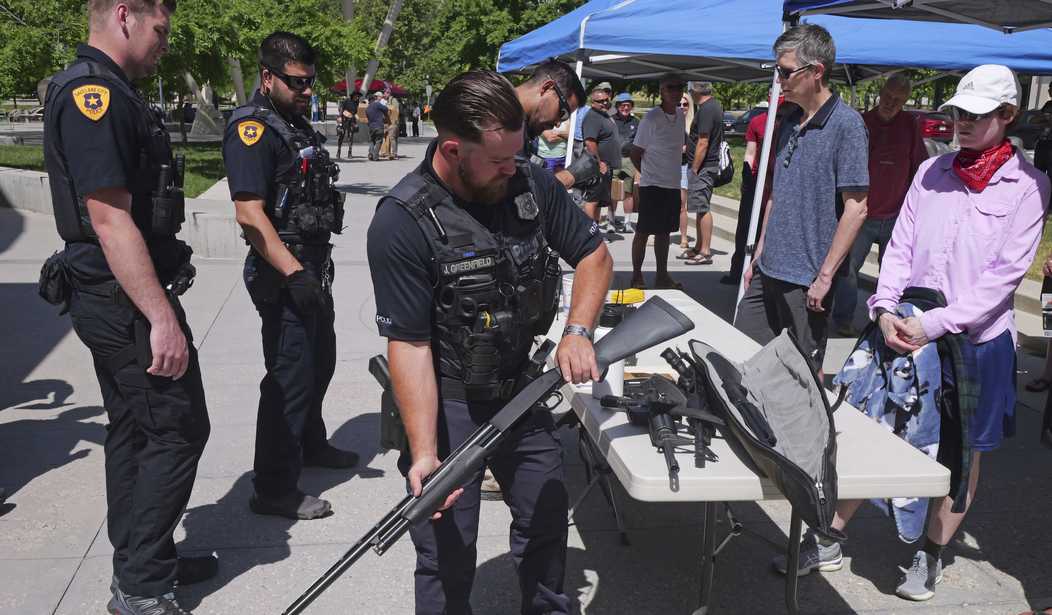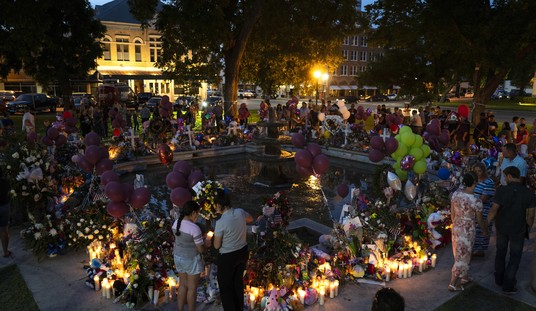Maybe the word is getting out that gun “buybacks” don’t do much of anything except provide politicians with some free press. While Second Amendment advocates may understand the uselessness of these programs, I can’t remember the last time I saw any criticism of “buybacks” from the left, at least until today.
As Richmond, Virginia gets ready to waste up to $63,000 on its first compensated confiscation event in decades, one community activist in the city is panning the idea, saying she doesn’t think it’s going to make a difference.
“What it’s really going to take, is leadership needs to humble themselves because humility is everything,” said Pastor Valerie Coley.
She found herself on the front lines of faith leadership decades ago when Richmond was known as the murder capital of the country per capita.
She’s in the communities working with youth and mentoring, saying that’s her solution. She said the current administration has too much pride and refuses to take advice from those who’ve helped deal with violence before.
“Mid-90s to early 2000s, we’ve been here before,” Coley said.
… Coley said the program will not work.
“It will not be the gangbangers that say, ‘guess what? I’m going to relinquish my gun over to you,’ because you don’t know what that gun might have on it,” said Coley. “You know some things are just common sense. You also have to look at different demographics. You go to other cities, and although there are crime similarities, it’s still different demographics in that city. You can’t say what works in that city is going to work in Richmond because it worked in New York. It’s just not gonna work that way.”
To be fair, there’s no evidence that gun “buybacks” worked in New York either. In fact, according to a study published just last year, there’s no evidence that these gun turn-in events reduce shootings, homicides, or suicides no matter where they take place.
The study found “no evidence” that the programs reduce gun suicides or homicides. The “results suggest that (gun buyback programs) have been an inefficient use of taxpayers’ dollars,” and it’s possible that “alternative firearm-related policies, such as safe storage laws or stricter background checks, would be more effective at deterring gun violence.”
One of that study’s authors, D. Mark Anderson, said a central question was whether these programs had any effect on gun violence.
“Might some type of program matter that we could think of? Maybe,” he told CNN. “But as implemented in the U.S.? I don’t think they’ve mattered.”
Do they even have much of a political benefit for anti-gun officials like Richmond’s mayor? I tend to doubt that as well, though Mayor Stoney needs an easy way to earn some positive headlines after he and the city’s police chief proclaimed last month that the city had thwarted a mass shooting at a Fourth of July fireworks event only to have the Commonwealth’s Attorney declare in court that there was no evidence that two illegal immigrants arrested on gun charges had any plan to stage a targeted attack.
Stoney’s been roundly criticized both for his original statements and subsequent stonewalling of the media, but the issues with crime and public safety in Virginia’s capital city go far beyond this one incident. Richmond had 90 homicides last year, and clearance rates have declined dramatically, meaning more perpetrators are getting away with murder. Major crimes are up by more than 20% this year, so I understand why Stoney’s looking for some positive press when it comes to public safety, but I’m glad to see at least one local news outlet is willing to question the city’s gun “buyback” plans.
Coley’s right that gang members and violent offenders aren’t going to turn in their guns, but that won’t stop Stoney from declaring the event a success regardless. Rather than focusing on the number of guns turned in, however, the real metric that we should be looking at is what happens to the crime rate afterwards, and based on all the research I’ve seen there’s no reason to expect that the violent offenses plaguing the city will drop substantially as a result. Stoney may get his headlines, but the beleaguered residents in Richmond’s high-crime neighborhoods aren’t likely to get any relief from the violence because of his compensated confiscation event.










Join the conversation as a VIP Member